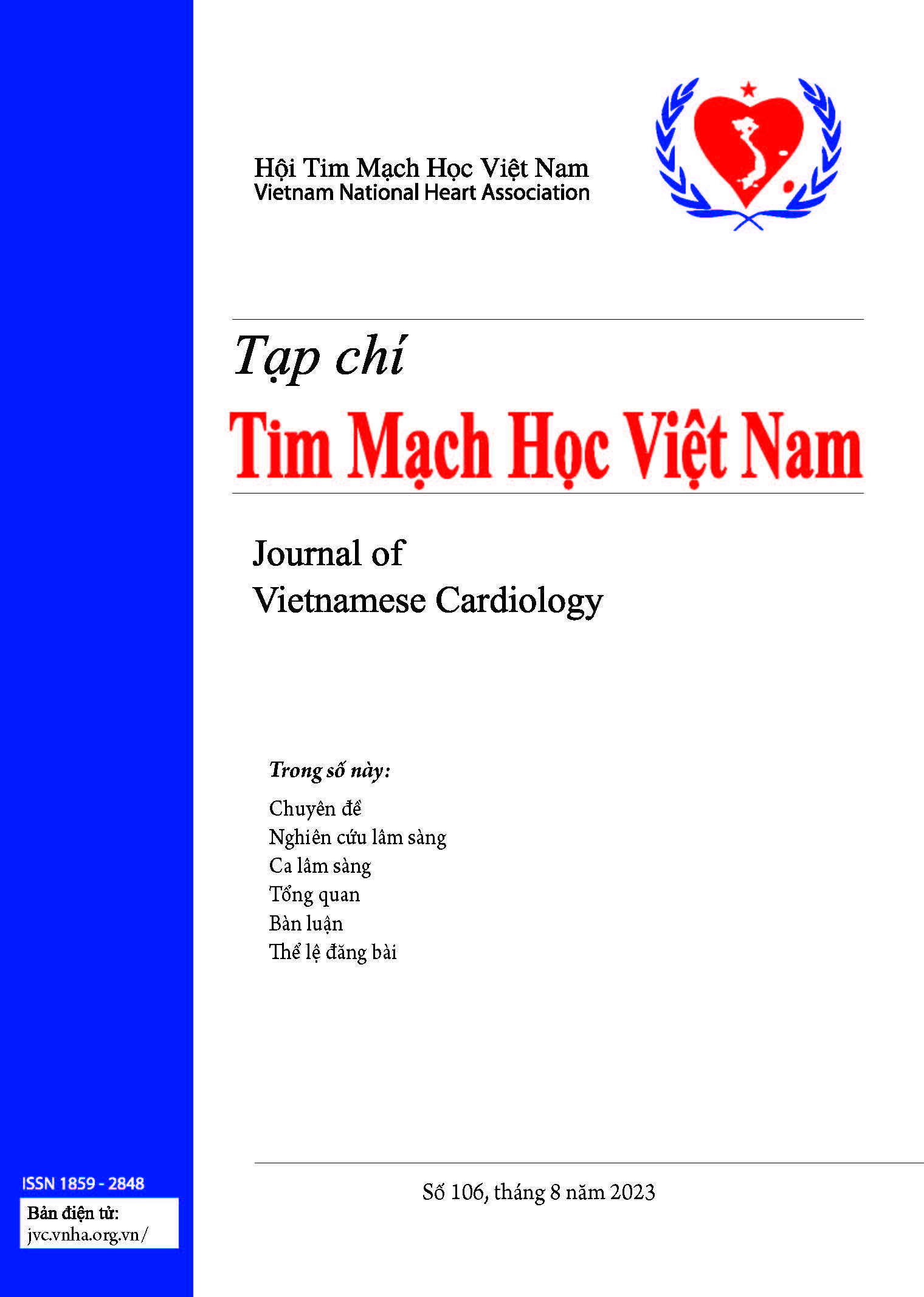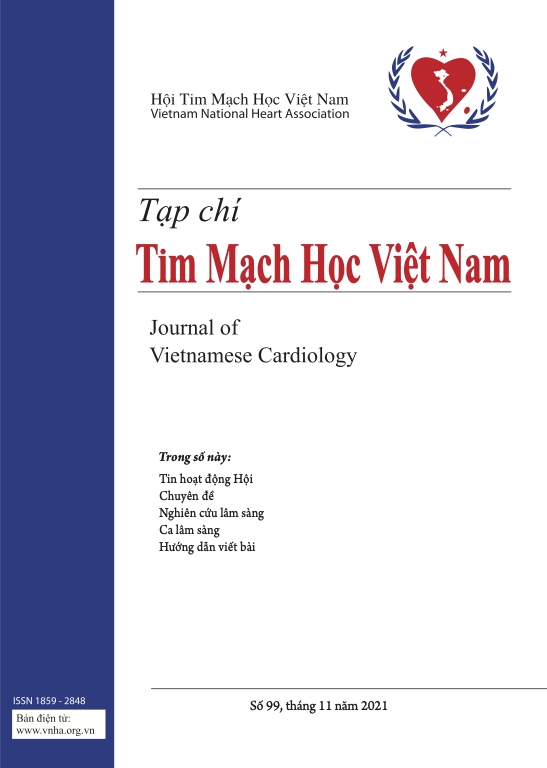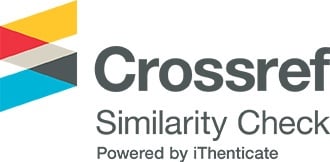Thuốc Ức chế PCSK9 trong Hội chứng mạch vành cấp: Hiện trạng và triển vọng lâm sàng
DOI:
https://doi.org/10.58354/jvc.106.2023.484Từ khóa:
Hội chứng vành cấp, Ức chế PCSK9, LDL-C, Biến cố tim mạch chínhTóm tắt
Mặc dù y học đã có nhiều tiến bộ nhưng tỷ lệ mắc bệnh và tử vong liên quan đến hội chứng mạch vành cấp tính (HCMVC) vẫn cao, đặc biệt là một năm sau biến cố cấp tính. Các nghiên cứu gần đây gợi ý liệu pháp ức chế PCSK9 có thể làm giảm đáng kể nồng độ cholesterol lipoprotein tỷ trọng thấp (LDL-C) trong huyết tương và biến cố tim mạch chính sau HCMVC nhờ tác động đến tiến triển mảng xơ vữa điều chỉnh mảng bám. Bài báo này trình bày các bằng chứng mới nhất của việc sử dụng sớm thuốc ức chế PCSK9 sau HCMVC cho tác dụng giảm mức LDL-C và biến cố tim mạch chính. Các thử nghiệm lâm sàng quan trọng như EVOPACS, ODYSSEY OUTCOMES, PACMAN-AMI và V-INCEPTION sẽ được thảo luận trong bày. Nói chung, chiến lược sử dụng sớm thuốc ức chế PCSK9 dưới dạng bổ sung cho liệu pháp statin cường độ cao trong HCMVC có vẻ là một cách tiếp cận an toàn và hiệu quả để đạt được mức LDL-C mục tiêu và giảm gánh nặng của bệnh xơ vữa động mạch.
Tài liệu tham khảo
Ibanez B, James S, Agewall S, Antunes MJ, Bucciarelli-Ducci C, Bueno H, et al. 2017 ESC Guidelines for the management of acute myocardial infarction in patients presenting with ST-segment elevation: The Task Force for the management of acute myocardial infarction in patients presenting with ST-segment elevation of the European Society of Cardiology (ESC). Eur Heart J. 2018;39(2):119-77.
![]()
Collet JP, Thiele H, Barbato E, Barthélémy O, Bauersachs J, Bhatt DL, et al. 2020 ESC Guidelines for the management of acute coronary syndromes in patients presenting without persistent ST-segment elevation. Eur Heart J. 2021;42(14):1289-367.
![]()
Mach F, Baigent C, Catapano AL, Koskinas KC, Casula M, Badimon L, et al. 2019 ESC/EAS Guidelines for the management of dyslipidaemias: lipid modification to reduce cardiovascular risk. Eur Heart J. 2020;41(1):111-88.
![]()
Grundy Scott M, Stone Neil J, Bailey Alison L, Beam C, Birtcher Kim K, Blumenthal Roger S, et al. 2018 AHA/ACC/AACVPR/AAPA/ABC/ACPM/ADA/AGS/APhA/ASPC/NLA/PCNA Guideline on the Management of Blood Cholesterol. Journal of the American College of Cardiology. 2019;73(24):e285-e350.
![]()
Hulten E, Jackson JL, Douglas K, George S, Villines TC. The effect of early, intensive statin therapy on acute coronary syndrome: a meta-analysis of randomized controlled trials. Arch Intern Med. 2006;166(17):1814-21.
![]()
Vedanthan R, Seligman B, Fuster V. Global perspective on acute coronary syndrome: a burden on the young and poor. Circ Res. 2014;114(12):1959-75.
![]()
Ray KK, Molemans B, Schoonen WM, Giovas P, Bray S, Kiru G, et al. EU-Wide Cross-Sectional Observational Study of Lipid-Modifying Therapy Use in Secondary and Primary Care: the DA VINCI study. Eur J Prev Cardiol. 2021;28(11):1279-89.
![]()
De Backer G, Jankowski P, Kotseva K, Mirrakhimov E, Reiner Ž, Rydén L, et al. Management of dyslipidaemia in patients with coronary heart disease: Results from the ESC-EORP EUROASPIRE V survey in 27 countries. Atherosclerosis. 2019;285:135-46.
![]()
Cannon CP, Braunwald E, McCabe CH, Rader DJ, Rouleau JL, Belder R, et al. Intensive versus moderate lipid lowering with statins after acute coronary syndromes. N Engl J Med. 2004;350(15):1495-504.
![]()
Lloyd-Jones DM, Morris PB, Ballantyne CM, Birtcher KK, Covington AM, DePalma SM, et al. 2022 ACC Expert Consensus Decision Pathway on the Role of Nonstatin Therapies for LDL-Cholesterol Lowering in the Management of Atherosclerotic Cardiovascular Disease Risk: A Report of the American College of Cardiology Solution Set Oversight Committee. J Am Coll Cardiol. 2022;80(14):1366-418.
![]()
Visseren FLJ, Mach F, Smulders YM, Carballo D, Koskinas KC, Bäck M, et al. 2021 ESC Guidelines on cardiovascular disease prevention in clinical practice. Eur Heart J. 2021;42(34):3227-337.
![]()
Koskinas KC, Windecker S, Pedrazzini G, Mueller C, Cook S, Matter CM, et al. Evolocumab for Early Reduction of LDL Cholesterol Levels in Patients With Acute Coronary Syndromes (EVOPACS). J Am Coll Cardiol. 2019;74(20):2452-62.
![]()
Schwartz GG, Steg PG, Szarek M, Bhatt DL, Bittner VA, Diaz R, et al. Alirocumab and Cardiovascular Outcomes after Acute Coronary Syndrome. N Engl J Med. 2018;379(22):2097-107.
![]()
Räber L, Ueki Y, Otsuka T, Losdat S, Häner JD, Lonborg J, et al. Effect of Alirocumab Added to High-Intensity Statin Therapy on Coronary Atherosclerosis in Patients With Acute Myocardial Infarction: The PACMAN-AMI Randomized Clinical Trial. Jama. 2022;327(18):1771-81.
![]()
Ray KK, Raal FJ, Kallend DG, Jaros MJ, Koenig W, Leiter LA, et al. Inclisiran and cardiovascular events: a patient-level analysis of phase III trials. Eur Heart J. 2023;44(2):129-38.
![]()
Penson PE, Pirro M, Banach M. LDL-C: lower is better for longer-even at low risk. BMC Med. 2020;18(1):320.
![]()








